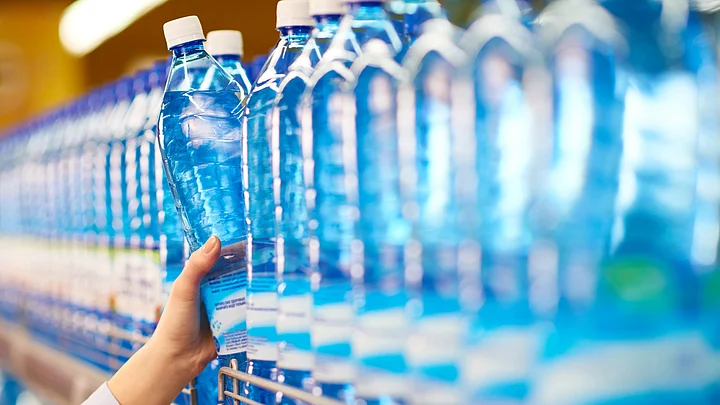One litre of bottled drinking water contains an average of 240,000 fragments of extremely tiny plastic particles, finds a new study published on 8 January in the journal, Proceedings of the National Academy of Sciences.
According to the researchers, this was up to 100 times higher than previously estimated.
What else has the study found? How can it impact your health?
Experts answered your FAQs.
First things first, what are nanoplastics, and how are they different from microplastics?
“Nanoparticles are very tiny particles, even smaller than microplastics," says Dr Ajay Agarwal, Director, Internal Medicine, at Fortis Hospital, Noida.
Plastic particles between 1 to 5000 micrometre in diameter are considered microplastics, whereas those below 1 micrometre are classified as nanoparticles.
How do these particles of plastic get into the water?
"Plastic bottles are lined with a substance known as polycarbonates that can release a substance known as Bisphenol A (BPA),which is thought to be toxic," says Dr Agarwal.
"Leaving water in a plastic bottle for a long time, and exposure to heat can cause it to leech into water. This is a common phenomenon," says Dr Ashwini Setya, Adjunct Professor in Gastroenterology, ESIC Medical College, Faridabad.
This can also happen when the bottles are squeezed, and when the caps are unscrewed or screwed back on.
What happens to these nanoparticles when you ingest them?
"There is some hypothesis that because these particles are so small, they are liable to be absorbed into the bloodstream and go to vital organs."Dr Ashwini Setya, Adjunct Professor in Gastroenterology, ESIC Medical College, Faridabad
Some studies in recent years have found evidence to this effect as well.
Dr Agarwal adds, "Our body is not built to digest plastic, and recent studies have shown that particles as tiny as microplastics do enter the bloodstream. So when they get into your body, your body is challenged, and its mechanisms go haywire."
Can the amount of nanoplastics now found in bottled water harm my health?
The short answer is, we don't know yet.
Dr Agarwarl says, "health issues like hormone imbalance, weight gain, infertility, diabetes and hypertension have been linked to microplastic in the bloodstream."
However, he adds, "no large-scale studies so have established a direct link between microplastics with any of these ailments."
Dr Setya adds, "It is possible that food grade plastic is safe. Right now there are not many scientific studies that provide evidence either way."
What about BPA? How toxic is exposure to that?
Several studies have linked BPA exposure to certain pregnancy complications such as fetal growth restriction, miscarriage, premature birth, and preeclampsia, as well as fertility issues.
However, says Dr Agarwal, the BPA levels shown to cause this kind of issue is much higher than what is generally found in plastic bottles so far.
"At this moment, we do not know how toxic the levels of BPA we are ingesting is going to be for pregnant women as well as the general population. "Dr Ajay Agarwal, Director, Internal Medicine, Fortis Hospital, Noida
How can you avoid it?
Considering we don't know what long health impact ingesting so much nanoplastics can have in the long run, both Dr Setya and Dr Agarwal agree that avoiding bottled water as far as possible is the best route to take.
According to Dr Setya, dependence on packaged drinking water has only been increasing in the past years because of a "lack of public sources of water."
An alternative to this that can help it to carry your own water from home wherever possible. "In general its a better option to switch from plastic bottled drinking water to glass or metal bottles," adds Dr Agarwal.

